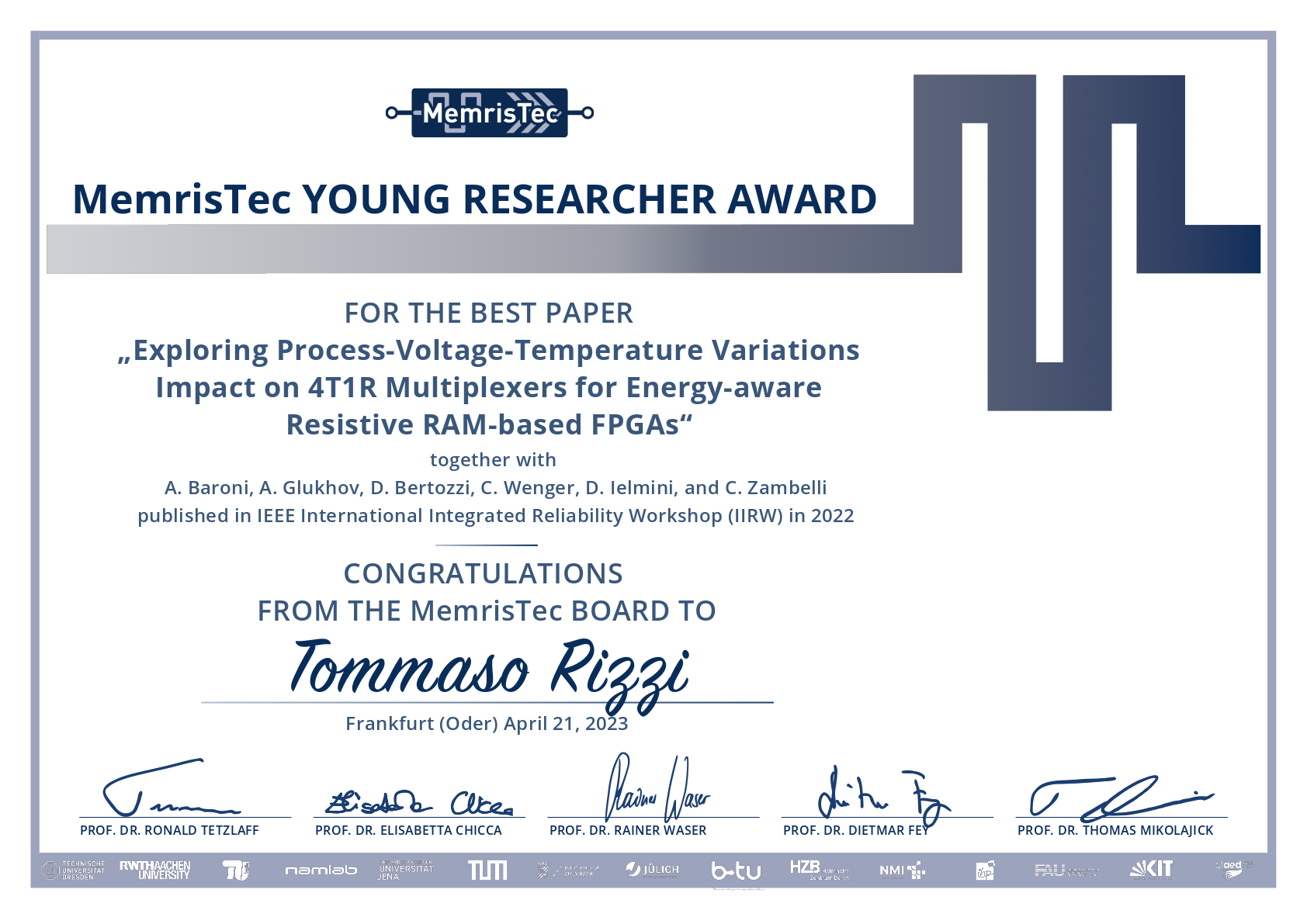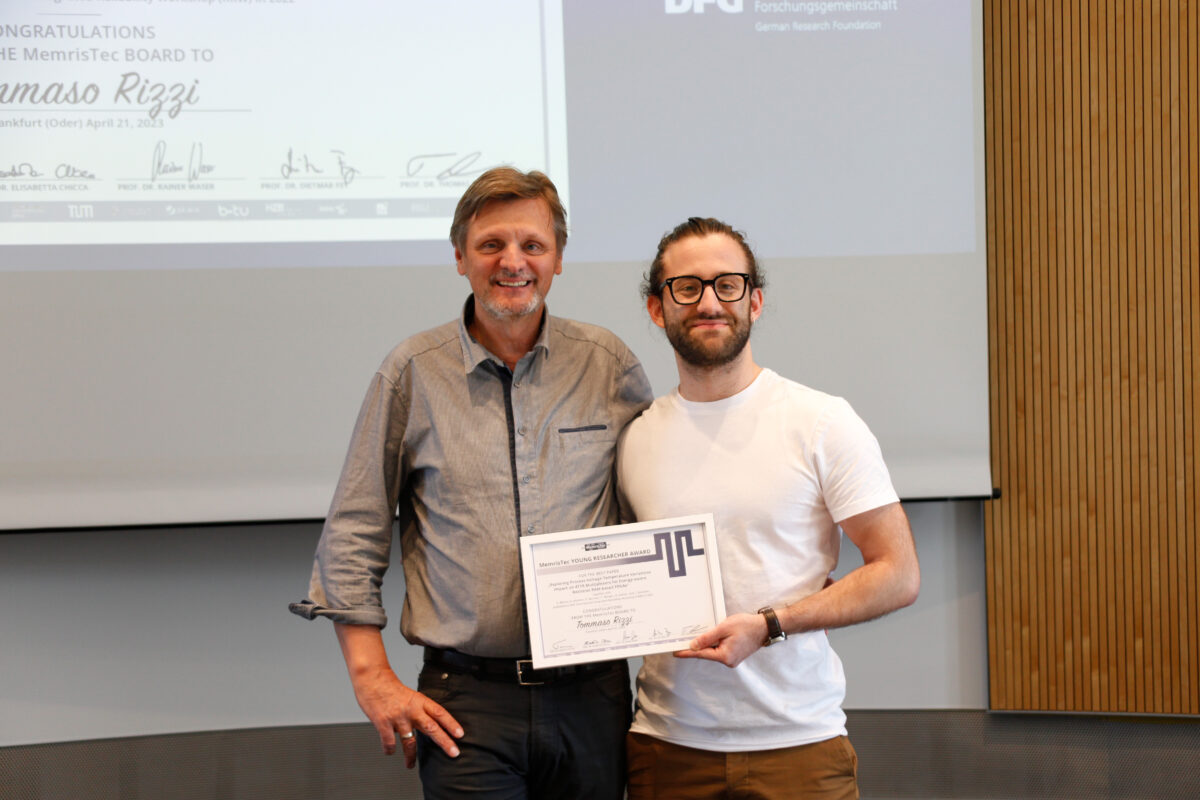During the MemrisTec2023 workshop, Tommaso Rizzi received one of the two MemrisTec Young Researcher Awards 2023 for his paper „Exploring Process-Voltage-Temperature Variations Impact on 4T1R Multiplexers for Energy-aware Resistive RAM-based FPGAs“, published in 10/2022 at the IEEE International Integrated Reliability Workshop (IIRW) in South Lake Tahoe, CA, USA.
Within his paper Tommaso Rizzi evaluated a promising way towards the implementation of RRAM based devices coupled with large sized multiplexers into FPGAs. His results provide considerable improvements in terms of energy consumption and speed of modern FPGAs.
All the best for Tommaso Rizzi!




